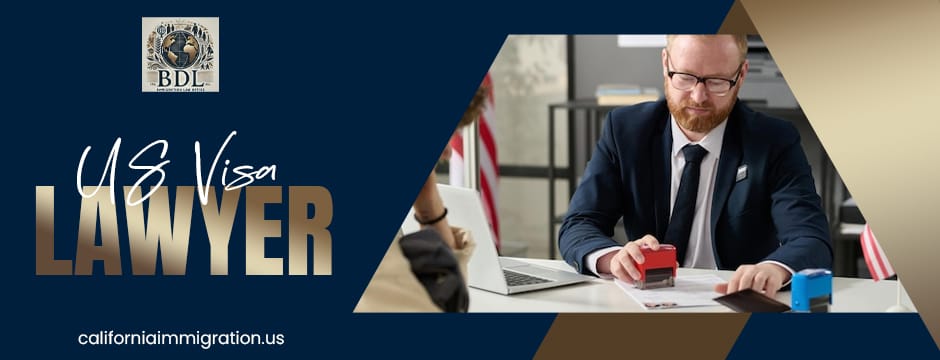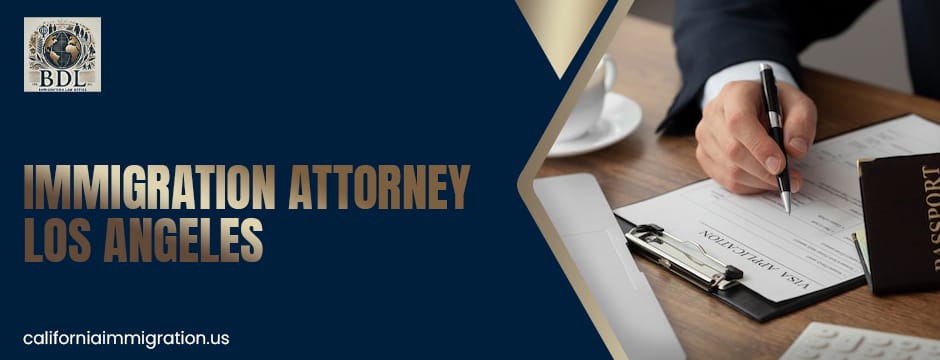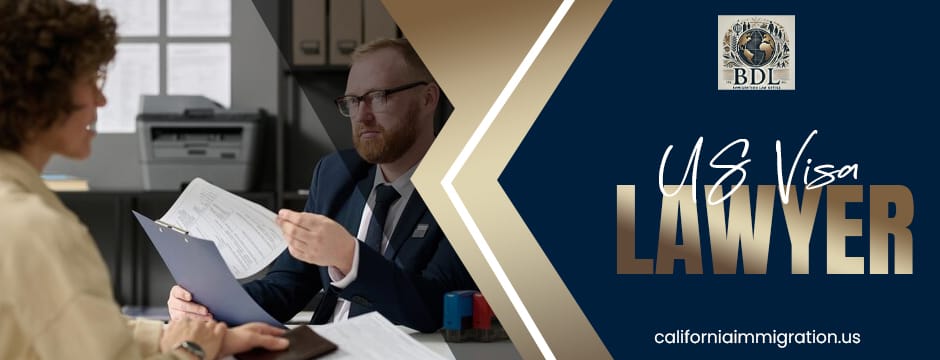Family is at the heart of the American immigration system. For many people living in the United States, bringing a spouse, child, parent, or sibling to live together under one roof is not just a legal process—it’s a deeply personal journey. However, U.S. immigration laws can be complex, filled with procedures, forms, waiting times, and eligibility requirements that often overwhelm families trying to navigate them alone.
This is where the expertise of a US visa lawyer becomes essential. A skilled immigration attorney helps families understand every step of the family-based immigration process, ensures accuracy in documentation, anticipates potential legal challenges, and maximizes the chances of success. Whether you are a U.S. citizen sponsoring your spouse or a lawful permanent resident trying to bring your children to America, having the right legal support can make the difference between delay and reunion.
This guide explains the full landscape of family-based immigration, from the types of petitions available to how an immigration attorney in Los Angeles or anywhere in the country can help you build a strong, well-prepared case.

Understanding Family-Based Immigration
Family-based immigration allows U.S. citizens and lawful permanent residents (LPRs or “green card holders”) to sponsor certain relatives for lawful permanent residency. It reflects one of the core principles of U.S. immigration law—family unity.
There are two broad categories of family-based immigration:
Immediate Relatives of U.S. Citizens:
These visas are available without numerical limits, meaning there is no annual cap. Immediate relatives include:
Spouses of U.S. citizens
Unmarried children (under 21) of U.S. citizens
Parents of U.S. citizens (if the U.S. citizen is at least 21 years old)
Family Preference Categories:
These visas are subject to annual numerical limits and typically involve waiting periods. The preference categories include:
F1: Unmarried sons and daughters (21 or older) of U.S. citizens
F2A: Spouses and unmarried children (under 21) of lawful permanent residents
F2B: This category applies to unmarried adult children (aged 21 or above) of lawful permanent residents.
F3: Married sons and daughters of U.S. citizens
F4: Brothers and sisters of adult U.S. citizens
Each category has its own priority date and waiting period determined by the Visa Bulletin issued monthly by the U.S. Department of State. A US visa lawyer carefully reviews these details to create an immigration plan that minimizes delays and ensures compliance with every procedural requirement.
The Sponsorship Process
The process begins when a U.S. citizen or lawful permanent resident files a Form I-130, Petition for Alien Relative. This form establishes a valid relationship between the petitioner and the beneficiary.
Once the petition is approved, the next steps depend on where the family member resides:
- Inside the U.S.: The family member may be eligible to apply for adjustment of status through Form I-485 if a visa is immediately available.
- Outside the U.S.: The relative is required to complete consular processing through a U.S. embassy or consulate located in their country of residence.
During these stages, accuracy and timing are critical. Missing documents, incomplete forms, or unverified information can lead to delays or denials. A seasoned immigration attorney in Los Angeles can help clients navigate each form, confirm eligibility, and ensure that every piece of evidence is well-organized and submitted properly.
Common Challenges in Family Immigration
Even straightforward family petitions can face complications. Below are some of the most common challenges and how a US visa lawyer can help:
Incomplete Documentation:
Many petitions are delayed because essential proof—like birth certificates, marriage records, or translations—is missing or incorrect. Lawyers ensure these documents are prepared according to USCIS standards.
Proving a Bona Fide Relationship:
Especially in marriage-based cases, USCIS carefully reviews evidence to confirm that the relationship is genuine. An attorney helps clients compile credible evidence such as shared finances, photos, travel records, and affidavits.
Prior Immigration Violations:
Overstays, unlawful entries, or past denials can complicate cases. A US visa lawyer evaluates whether a waiver is needed and guides the applicant through Form I-601 or I-601A for inadmissibility waivers.
Processing Delays and RFEs:
USCIS sometimes issues Requests for Evidence (RFEs) or Notices of Intent to Deny (NOIDs) when a case lacks clarity. Lawyers anticipate these requests, prepare strong responses, and prevent unnecessary denials.
Visa Retrogression:
For preference categories, visa numbers may not be immediately available. An experienced lawyer monitors the Visa Bulletin and plans strategically, keeping clients informed about timelines.
The Role of a US Visa Lawyer
Hiring a US visa lawyer is not just about filling out forms—it’s about strategic guidance and legal advocacy. Here are some key roles a lawyer plays:
- Eligibility Assessment: Determining whether the petitioner and beneficiary qualify under immigration law and identifying potential risks before filing.
- Documentation Support: Creating personalized document checklists and verifying that each form meets USCIS and consular requirements.
- Case Preparation: Drafting legal arguments, affidavits, and cover letters that clearly explain your eligibility and relationship.
- Interview Preparation: Preparing clients for immigration interviews to ensure they understand the process and can confidently respond to questions.
- Follow-Up and Appeals: Managing updates, responding to government notices, and, if necessary, filing motions or appeals when cases are delayed or denied.
A US visa lawyer combines deep knowledge of immigration statutes, years of practical experience, and a clear understanding of what adjudicators look for in family petitions.
Adjustment of Status vs. Consular Processing
When a family member is inside the United States, adjustment of status is often the preferred option because it allows them to remain in the country while applying for a green card. However, this route is only available to those who entered legally and are eligible under the Immigration and Nationality Act (INA).
Consular processing, on the other hand, is required when the beneficiary lives outside the U.S. The process takes place at a U.S. consulate or embassy. While this path can take longer, it often avoids complications related to unlawful presence or entry violations.
A knowledgeable immigration attorney in Los Angeles helps families decide which option is best based on their immigration history, timing goals, and risks involved.
Waivers of Inadmissibility
Some applicants may be deemed “inadmissible” to the United States due to previous visa overstays, criminal records, or misrepresentations. In such cases, a US visa lawyer can help file for waivers like:
- Form I-601 (Application for Waiver of Grounds of Inadmissibility)
- Form I-601A (Provisional Unlawful Presence Waiver)
These waivers require strong evidence of extreme hardship to a qualifying U.S. citizen or lawful permanent resident relative. Crafting a compelling hardship argument involves detailed documentation of emotional, financial, and medical factors. Attorneys with years of experience understand how to frame these cases effectively to increase the likelihood of approval.
Keeping Families Together During Delays
USCIS and consular backlogs are common, especially after global disruptions and changing immigration policies. While delays can be frustrating, an experienced lawyer helps clients stay informed, respond quickly to updates, and explore lawful ways for temporary visits while awaiting final approval.
In some cases, humanitarian parole or advance parole may be an option for urgent family reunification needs. A US visa lawyer understands these nuanced pathways and can advise clients on which humanitarian options may apply.
Importance of Legal Strategy
Every family’s situation is different. Some require a simple I-130 filing, while others involve complex waiver requests or prior immigration violations. Without proper legal guidance, small errors can lead to denials that separate families for years.
A well-planned strategy developed by an experienced immigration attorney in Los Angeles can prevent such outcomes. From reviewing travel records to ensuring financial sponsorship requirements are met, lawyers create a personalized approach that aligns with the family’s goals and U.S. immigration law.
How the Law Offices of Brian D. Lerner Can Help
At the California Immigration, we have been helping families reunite through immigration for nearly 30 years. Our team understands how stressful and emotional the process can be, and we work hard to make it as smooth as possible.
We handle everything from family-based petitions and waivers to consular processing and removal defense. Every case begins with a clear strategy—complete with a document checklist, timeline, and honest assessment of the best route forward. Whether you are filing for a spouse, child, or parent, we explain each step so you know exactly what to expect.
As an experienced immigration attorney in Los Angeles, we also assist clients across the U.S. and abroad through video or phone consultations. We understand the human side of immigration law and take pride in offering compassionate, practical guidance backed by decades of experience. Our goal is simple: to bring families together and help them build a secure future in the United States.

Conclusion
Family-based immigration is one of the most meaningful pathways in U.S. immigration law, offering a chance for loved ones to live together and thrive. Yet, the process can be complex and full of obstacles without proper legal support.
A dedicated US visa lawyer ensures that your petition is complete, accurate, and supported by solid evidence. From establishing eligibility to addressing waivers or defending your rights in court, professional legal guidance helps protect your family’s future.
For anyone beginning this journey, the key is preparation, patience, and trusted counsel. With the right attorney by your side, family reunification is not just a hope—it becomes an achievable goal rooted in clear legal strategy and genuine care.

